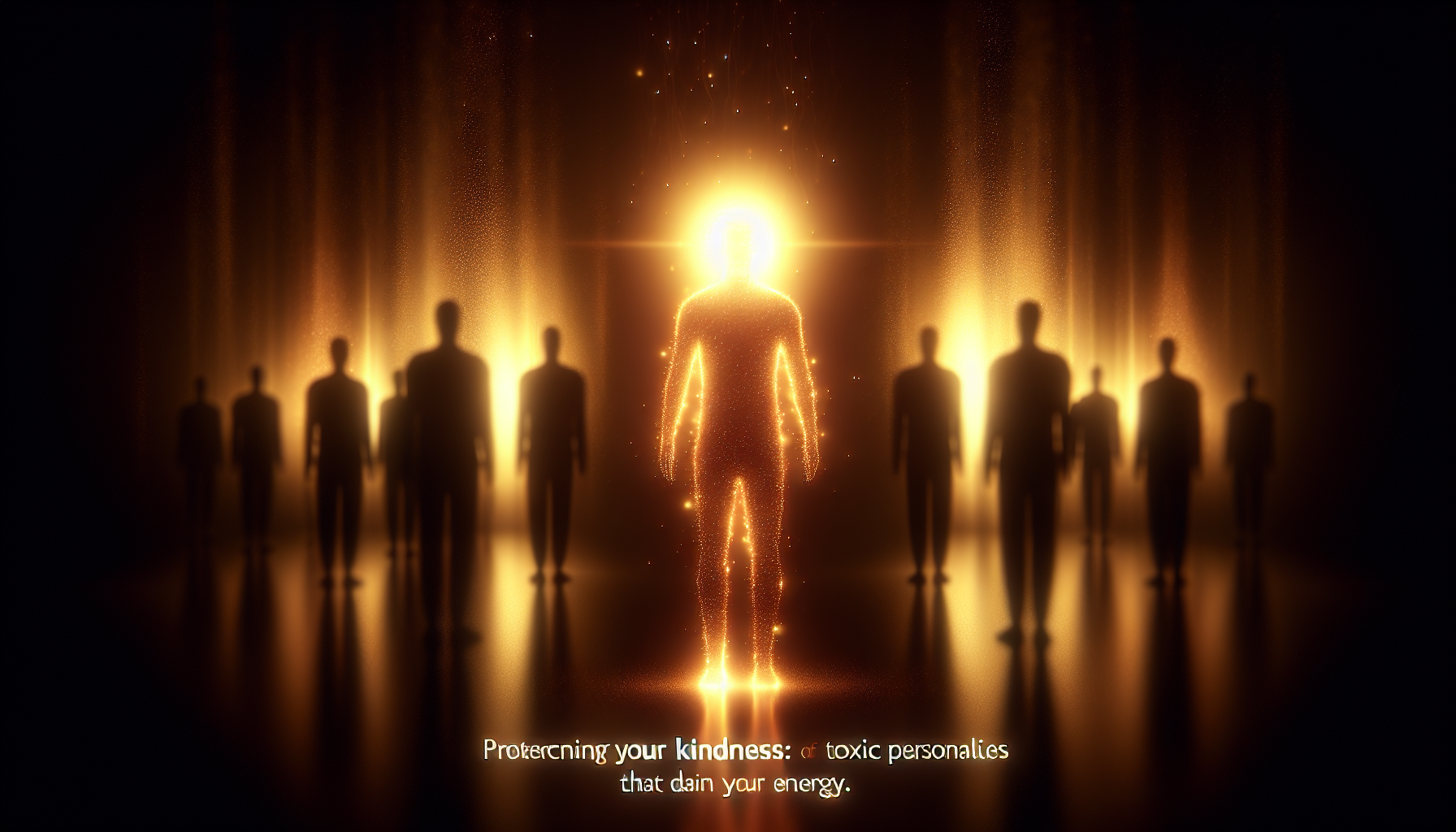Protecting Your Kindness: Recognizing Toxic Personalities That Drain Your Energy

Introduction: The Trap of Kindness
In the grand theater of life, kindness often acts as a powerful spotlight—unfortunately, it also attracts a motley crew of toxic individuals who will gladly steal the show. It's crucial to recognize that while embracing kindness, there are specific personalities that drain us rather than uplift us. Remember the Stoic wisdom: it's not what happens to you, but how you respond. So, do your future self a favor and pay attention!
The Cost of Kindness: Understanding Overgiving
Many find themselves slipping into the role of the "overgiver," extending kindness to those who take advantage of it. In recognizing the balance between kindness and self-respect, it’s important to acknowledge that your emotional energy is finite; don’t waste it on individuals who consistently drain it. As psychology suggests, “We suffer more often in imagination than in reality,” indicating the need to evaluate who truly deserves your kindness [Source: Psychology Today].
Identifying Toxic Personalities
Being aware of toxic personalities is the first step to protecting your kindness. Here are several types to consider:
- The Complainer: This person is a walking rain cloud, perpetually grumbling about life's injustices, which will only serve to drag you into their negativity. Stoics teach us that our responses matter most, so why let them dictate your emotional state?
- The User: Ever met someone who only reaches out when they need something? This type thrives on dependency without reciprocation—think of them as emotional leeches [Source: Psychology Today].
- The Drama Queen: Some thrive on chaos, constantly creating a spectacle that disrupts peace. Stoicism teaches us the best revenge is not to engage in melodrama [Source: Healthline].
- The Judgemental Guru: This individual believes they hold the ultimate truth and critiques you at every turn, leading only to feelings of inadequacy—without providing any substantial value.
The One Who Repeatedly Disrespects You
Those who continually disregard your boundaries or disrespect you need to be shown the door. Philosophically speaking, respecting oneself must come before any relationship, and Stoicism emphasizes the importance of self-worth. “He who suffers before it is necessary suffers more than is necessary” serves as a reminder to cut these toxic ties before they establish deeper roots [Source: Psychology Today].
The One Who Pretends to Support You
This type masquerades as supportive but quickly reveals their true colors when the spotlight shines on your success. Genuine support is reciprocal, while fake support comes with strings attached, dragging you down [Source: HuffPost].
The One Who Makes You Feel Guilty for Saying No
Guilt-trippers have a unique talent for making you feel like a villain every time you prioritize your own needs. Stoic philosophy encourages personal boundaries; you should never feel guilty about protecting your mental health [Source: Psychology Today].
The One Who Uses You Only When It's Convenient
These individuals come to the fore only when they require help, exhibiting a blatant disregard for your needs in favor of their own. As Marcus Aurelius pointed out, letting go of such opportunists allows room for more genuine relationships [Source: Psychology Today].
The One Who Lies Without Remorse
If someone consistently lies without showing remorse, it's time to distance yourself from that toxicity. Relationships should be founded on trust and honesty, not manipulation. Kick them to the curb [Source: Psychology Today].
The One Who Dismisses Your Feelings
Your feelings are valid, yet some people insist on dismissing them entirely. This lack of empathy can be a significant red flag, indicating that their presence is harmful to your well-being. “The opinions of others are none of my business” encapsulates the Stoic approach toward such negativity.
The One Who Makes You Feel Small to Feel Big
Those who belittle your achievements or emotions to elevate themselves should not hold a place in your life. Surrounding yourself with people who uplift rather than downplay your worth stabilizes your emotional health [Source: Psychology Today].
Conclusion: Protecting Your Kindness
Ultimately, remember that kindness should be a shield, not an invitation for toxicity. Prioritize your peace, because life’s too short to be surrounded by negativity. Recognizing and setting boundaries with these perspectives will cultivate a more enriching and fulfilling environment.
Call to Action
Take a moment to reflect on your relationships. Identify any toxic individuals and consider ways to set healthy boundaries. Your kindness is a treasure; protect it fiercely.
Sources
- Psychology Today - What Are Negative Thoughts and How You Can Challenge Them
- Psychology Today - Me: How to Stop Avoiding Personal Responsibility
- Psychology Today - Social Relationships and the Chronic Complainer
- HuffPost - The Perpetual Victim Mentality
- Healthline - Drama Queen Behavior
- Psychology Today - The Predicament of Honesty
- Psychology Today - The Science of Gossip